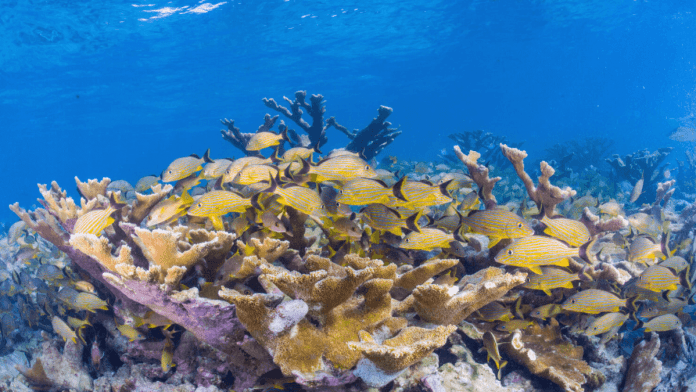News in Brief:
– South China Sea reefs suffer extensive damage from island-building and overfishing, threatening marine ecosystems.
– Local farmers and fishermen bear the brunt of environmental degradation, facing livelihood challenges due to depleted fish stocks and disrupted marine habitats.
A recent investigation by the Asia Maritime Transparency Initiative (AMTI) and the China Ocean Institute reveals the extensive damage inflicted by industrial overfishing, aggressive island-building, and reckless giant clam harvesting. These actions have not only sparked geopolitical tensions but also threaten the livelihoods of local fishermen and farmers, according to a report.
The South China Sea, rich in resources and disputed territories, has become a battleground for countries like the Philippines, Malaysia, Vietnam, and China. Amidst these territorial disputes, the marine environment suffers. The report highlights the alarming scale of coral reef destruction, with Gregory Poling of the AMTI describing it as the largest active man-made reef destruction in human history.
The repercussions of this environmental degradation extend to local farmers and fishermen who depend on the sea for their livelihoods. Overfishing diminishes fish stocks, affecting the income of coastal communities reliant on fishing. Moreover, the destruction of coral reefs disrupts marine ecosystems, jeopardising the delicate balance upon which local fisheries rely.

China’s role as a major aggressor
China emerges as the primary culprit in the report, responsible for extensive reef destruction and employing reckless fishing methods. The indiscriminate harvesting of giant clams by Chinese fishers further exacerbates the ecological crisis, decimating populations vital for marine biodiversity.
For local farmers and fishermen, the consequences are dire. Depleted fish stocks and damaged marine habitats diminish their ability to earn a livelihood, exacerbating poverty and food insecurity in coastal communities. The destruction of coral reefs also threatens tourism revenue, impacting local economies.
The report calls on coastal states to prioritize marine conservation and sustainable fishing practices. It urges governments to view territorial disputes through an ecological lens, emphasising the need for collaboration and responsible resource management. For local farmers and fishermen, these measures offer hope for the restoration of their livelihoods and the preservation of their way of life.



